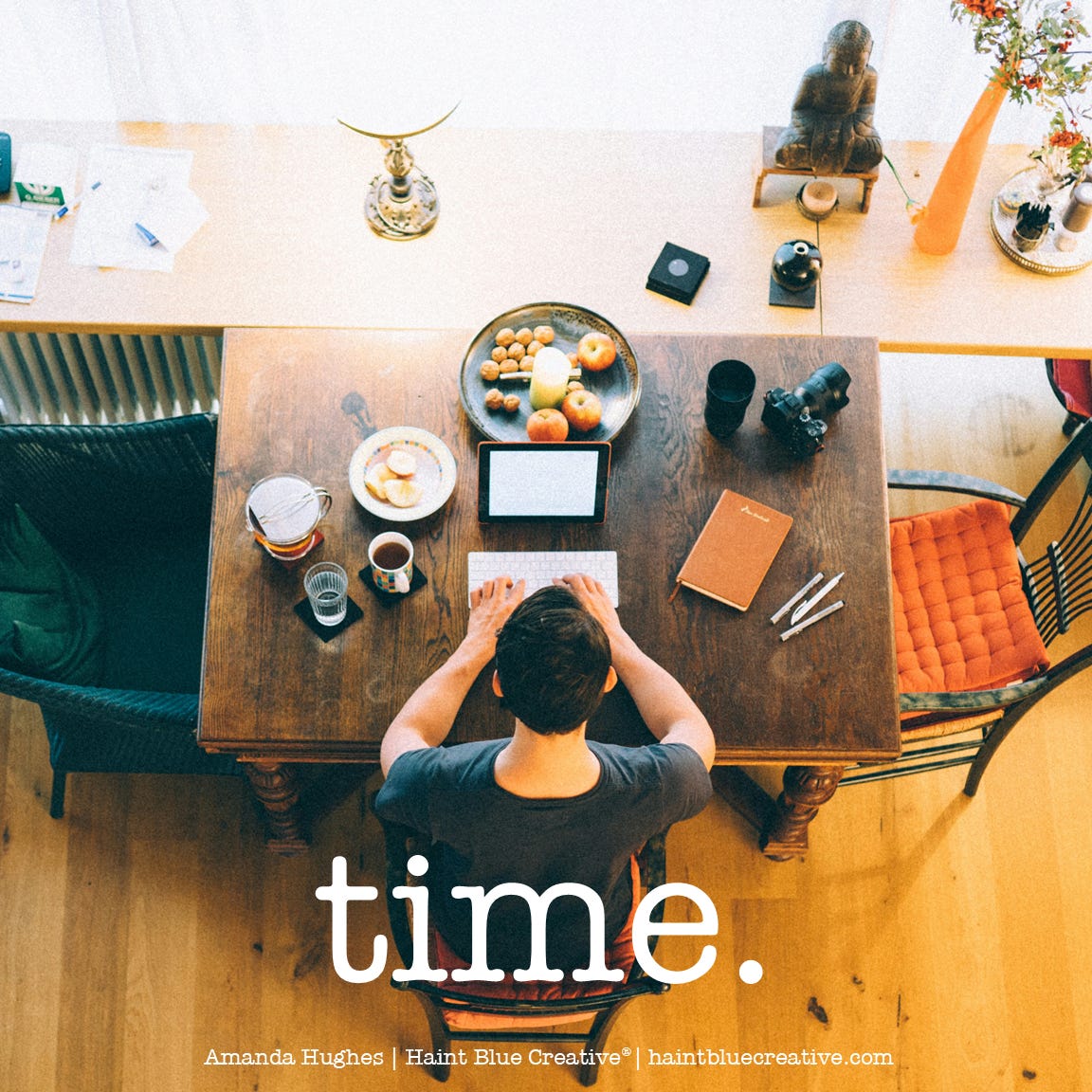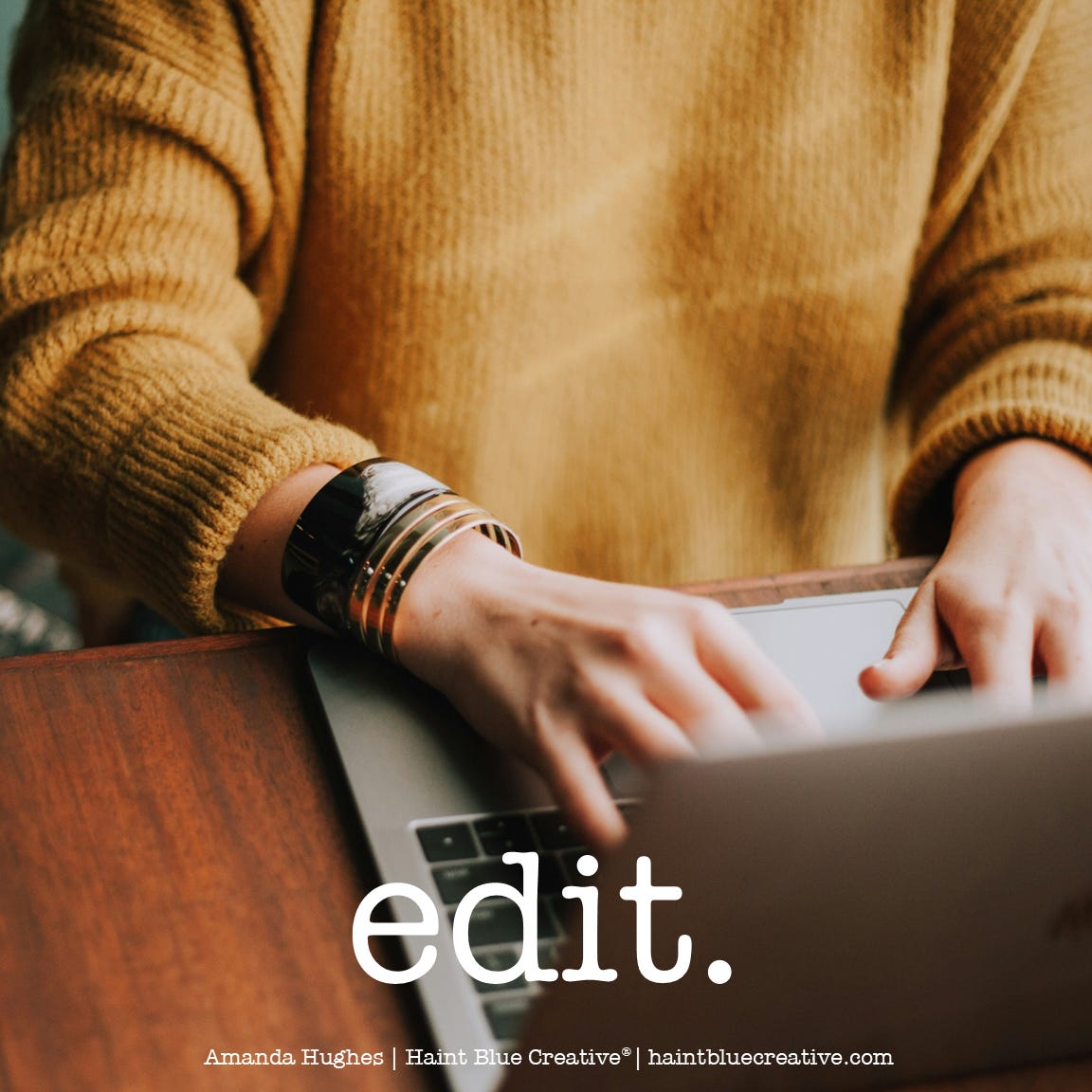6 Priorities for Becoming a Better Storyteller
If you are reading this, you are most likely a writer. If this is true, I don’t have to tell you that writing is NOT easy. It’s hard work, and it can be taxing on the mind, body, heart, and spirit.
Given these details, why do we write?
I write because storytelling is my lifeblood. It fuels my soul and although the practice can be difficult, the outcome is worth the struggle. In order to become a better storyteller, however, I’ve had to make changes both in my daily routine and my life as a whole.
In my endeavor to become a better storyteller, I’ve uncovered six priorities, which I am happy to share with you to support and encourage your own efforts.
1. Prioritize your health.
During the COVID-19 years, I found maintaining a healthy lifestyle extremely difficult. After adjusting to my new remote work-life balance, I soon eased into a daily routine in which I wasn’t eating well or exercising nearly as much as before the quarantine. Staying at my computer most of the day became the norm as moving around for breaks and meetings no longer required leaving my desk. As a result, I experienced an increase in “pandemic poundage” and prioritizing my health became lucrative to my physical, mental, emotional, and spiritual wellbeing.
According to the National Institute of Health a sedentary lifestyle can cause an increase in heart disease, cancer, obesity, and osteoporosis*. As such, I have prioritized drinking more water, setting aside time for daily mediation, moving my body throughout the day (even if only for a walk around the house every hour just to get out of my desk chair), and unplugging from electronics—including social media—one day a week. For me, Sunday works best, and this time has been a breath of fresh air to my storytelling. Has your experience been similar? How have you prioritized your health in the past few years?
2. Prioritize your writing time.
Making my writing time a priority in my day has meant the difference between me talking about writing novels and actually finishing and publishing them. Several years ago, after adjusting my daily routine to include time carved out ONLY for writing, I started doing just that. I’m an early bird, so I set aside a few hours every morning (right after making my coffee) to work on these articles, books, and other creative projects. If you are a night owl, you might do the same in the evenings.
While this plan sounds great on paper, the adjustment wasn’t easy. For a couple of weeks I had to fight “Resistance,” the urge to put off or avoid something because it might cause discomfort. I had to resist hitting the snooze button on my alarm, I had to resist skipping my writing and instead washing the dishes from the night before, I had to resist the overall avoidance of writing because of comparison, guilt, anxiety, etc. To aid in my fight, I started washing the dishes before bed, going to bed earlier, and keeping my phone in the other room so I wasn’t tempted to “check” social media before getting started with my writing the next morning. You can read more about the concept of Resistance in Steven Pressfield’s book The War of Art: Break Through the Blocks and Win Your Inner Creative Battles. I’ve read the book several times, my copy dog-eared, highlighted, and underlined. I highly recommend it as part of your storytelling How-To bookshelf.
3. Make spelling and grammar a priority—even on social media.
Perception is reality, so being taken seriously as a storyteller is extremely important to me. No matter where my words land, or who reads them, I want to be viewed as an excellent writer, even in text messages and social media posts. If you share this desire, and grammar and punctuation are important to you at all times, you might need to STOP doing the following:
using a lowercase i when I is a standalone word and/or at the beginning of a sentence.
misusing your: Your = belonging to; you’re = you are.
mistaking then for than—You have more coffee than her, not then her.
adding a period outside of the quotation marks instead of within—“She wrote an interesting blog post”. Correct: “She wrote an interesting blog post.”
4. Seek inspiration through staying curious.
Staying inspired is just as much a priority as actually sitting down to write. After all, what would I write about if inspiration was always fleeting? For me, staying curious about the world helps keep my creative cogs moving smoothly and consistently. I enjoy being out in nature, taking long walks, and pausing to observe the sky, trees, birds, plants, and even rocks. I watch people and animals, observing how they interact, how their bodies move, and how they communicate. These details have helped me write better dialogue, showing (rather than telling) my story and allowing it to unfold through my characters.
Back in 2014, when I first started writing my book series, The Scars We Choose, one of the main characters came to me in a vision while I was walking at the park. In the vision, an assortment of tarot cards was spread out on a table. After learning about the tarot so that I could understand how to write what I was imagining, I started using the cards to sharpen my intuition, inspire plot lines, and even thwart writer’s block.
Other sources of storytelling inspiration are cinema and books. Big or small screen, I love watching movies, and when I’m not writing or can’t write, I read books. Whatever inspires your storytelling can have a profound effect on both the process and outcome. So, what inspires you? I encourage you to stay curious and infuse your craft with what you observe and learn.
5. When you’re not writing, prioritize reading.
Reading is so important that I feel it deserves its own spot on this list. Stephen King is often quoted for his nuggets of writing wisdom, one of my favorites being, “If you want to be a writer, you must do two things above all others: read a lot and write a lot.” The author is also quoted as claiming to take a book with him everywhere he goes, so that he can inject reading into his routine, even in small doses.
For me, the evenings and Sundays are best for reading. After my work is done, and the house is settled, I crack open a book and read. Often, however, it’s hard to focus. When I’m unwinding from my day or my mind is reeling with all the things I want to write, I find it difficult to concentrate on what I’m reading. When this happens, I read to make note of how the language is used. I like to study how other authors write dialogue and what types of sensory words they use to describe settings. I often highlight the phrases or scenes I find most deliciously inspiring, speaking the words aloud so I can feel and taste them rolling off my tongue. What is your best time of the day/week for reading? Do you find the storytelling methods of others inspiring to your own?
6. Stop comparing yourself to other writers.
While I’m on the topic of reading other writers’ work, I want to make a confession. Early on, while I was learning and practicing my writing craft, I often found myself comparing my work to what I was reading. Although I aspired to be as skilled a storyteller as Toni Morrison, Carson McCullers, and Wally Lamb, I sometimes found the endeavor discouraging. In those early years, one of the greatest lessons I learned from reading the work of others was this: Excellent storytelling takes time, effort, consistency, and persistence.
As an author, I have failed time and time again; however, giving up has never been an option. I simply had to fail better, learning from my failures and persisting to become an even better storyteller because of them. If you are a novice writer, your first article/story/book is not likely going to be as easy to write as the next person’s fifteenth. Your new writer-themed Instagram page or TikTok account is most likely not going to have thousands of followers right after you start becoming serious about building your brand and platform. Excellence takes time, experience, and even failure, but it does NOT come with quitting because of comparison. What makes your storytelling voice unique is what will make your writing sing and your readers keep your songs on repeat. Therefore, read the work of others—yes—but please try not to compare yours.
What do you think about this list?
Which of these priorities resonate with you? Which can you incorporate into your everyday routine?
Prioritize your health.
Prioritize your writing time.
Make spelling and grammar a priority—even on social media.
Seek inspiration through staying curious.
When you’re not writing, prioritize reading.
Stop comparing yourself to other writers.
Reference
*Park, J. T., Moon, J., Kim, H., Kong, M. H., & Oh, Y. K. (2020). Sedentary Lifestyle: Overview of Updated Evidence of Potential Health Risks. Korean Journal of Family Medicine, 41(6), 365–373. https://doi.org/10.4082/kjfm.20.0165
About Mandy
Amanda "Mandy" Hughes is an author and instructional designer who uses the tarot to inspire storytelling. Her book Mystic Storyteller: A Writer’s Guide to Using the Tarot for Creative Inspiration and companion tarot deck are helping her peers do exactly that. She also writes fiction under pen name A. Lee Hughes. Mandy lives in Georgia with her husband and four sons, two of whom are furrier than the others (but not by much). Visit her website at www.haintbluecreative.com and find her on Substack @HaintBlueCreative.










